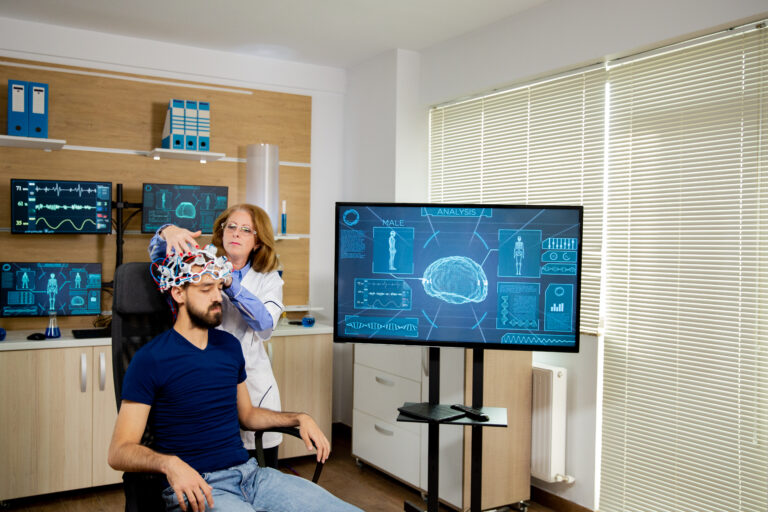How Gastroenterologists Can Improve Insurance Eligibility Verification to Reduce Patient Billing Surprises
Gastroenterology practices face unique challenges in today’s healthcare landscape. With complex procedures ranging from colonoscopies and endoscopies to advanced therapeutic interventions, ensuring timely and accurate insurance verification is crucial. Patients often experience unexpected bills due to coverage lapses, denied claims, or out-of-network charges, which can harm both patient satisfaction and clinic revenue.
Effective insurance eligibility verification is not just an administrative task—it is a strategic revenue cycle management practice that reduces claim denials, improves patient experience, and ensures predictable cash flow. In this article, we explore how gastroenterologists can optimize eligibility verification, common pitfalls to avoid, and how Right Medical Billing (RMB) helps gastroenterology practices minimize patient billing surprises.
The Importance of Insurance Eligibility Verification in Gastroenterology
Gastroenterology involves a variety of procedures, including diagnostic and therapeutic interventions such as:
-
Colonoscopy
-
Upper endoscopy (EGD)
-
Polypectomy
-
ERCP (Endoscopic Retrograde Cholangiopancreatography)
-
Capsule endoscopy
Each of these procedures carries unique CPT codes, varying coverage requirements, and sometimes prior authorization mandates. Errors in verifying insurance eligibility can lead to:
-
Denied claims: Procedures billed to an inactive plan or out-of-network payer.
-
Delayed reimbursements: Claims held until payer confirms eligibility.
-
Patient dissatisfaction: Unexpected bills may erode trust and reduce retention.
-
Revenue leakage: Lost or delayed payments hurt clinic cash flow.
By implementing a systematic approach to eligibility verification, gastroenterologists can reduce these risks and improve operational efficiency.
Common Challenges in Gastroenterology Insurance Verification
Despite its importance, many practices struggle with eligibility verification due to:
-
Complex Payer Rules: Each insurer may have different coverage requirements for diagnostic and therapeutic procedures.
-
High Procedure Volume: Busy gastroenterology clinics may see dozens of patients daily, making manual verification labor-intensive.
-
Prior Authorization Requirements: Many procedures require approval before service, and missing this step can lead to claim denials.
-
Multi-Payer Confusion: Practices often work with multiple commercial payers, Medicare, Medicaid, and secondary insurers, complicating verification.
-
Patient Plan Changes: Insurance coverage may change between scheduling and the procedure date, which is often overlooked.
These challenges can lead to billing surprises that frustrate patients and impact revenue.
Best Practices for Insurance Eligibility Verification
Optimizing eligibility verification requires a combination of technology, training, and standardized workflows. Gastroenterology practices can adopt the following best practices:
1. Verify Insurance Before Every Appointment
Eligibility should be confirmed at the time of scheduling and again before the procedure. This double-check reduces errors caused by changes in coverage or policy termination.
2. Collect Complete Patient Information
Accurate demographic and insurance data is essential. This includes:
-
Full name, date of birth, and social security number
-
Primary and secondary insurance plans
-
Policy ID and group number
-
Employer details (if applicable)
3. Use Technology to Automate Verification
Modern Practice Management Systems (PMS) and RCM software allow automatic verification of eligibility and benefits, saving time and reducing manual errors.
4. Confirm Prior Authorizations
Many gastroenterology procedures require prior authorization, especially:
-
Colonoscopies with biopsy
-
Endoscopic ultrasound with intervention
-
Therapeutic ERCPs
Automating authorization tracking ensures approvals are obtained before patient visits.
5. Train Front Desk and Billing Staff
Frontline staff should be trained to verify eligibility, confirm coverage, and explain patient responsibility. Clear communication prevents misunderstandings and reduces patient complaints.
6. Provide Transparent Cost Estimates
Patients should receive an estimate of out-of-pocket costs based on verified insurance information. Transparency builds trust and prepares patients for potential co-pays or deductibles.
Leveraging Right Medical Billing for Gastroenterology Practices
For busy gastroenterology clinics, outsourcing or partnering with Right Medical Billing can transform eligibility verification into a revenue-enhancing process. RMB specializes in:
-
Automated Eligibility Verification: Real-time verification with major payers ensures accurate coverage before procedures.
-
Prior Authorization Management: We handle approvals, monitor expiration dates, and communicate with insurers, minimizing claim denials.
-
Patient Financial Counseling: Our team educates patients on potential costs, providing superbills and financial options.
-
Denial Prevention and Appeals: We track rejected claims due to eligibility errors and appeal them effectively, recovering lost revenue.
-
Reporting and Analytics: Dashboards provide insights into eligibility trends, payer performance, and patient responsibility metrics.
By combining technology with expertise, RMB ensures gastroenterology practices minimize billing surprises and maintain strong cash flow.
Key Metrics to Monitor for Eligibility Verification Success
To evaluate the effectiveness of your verification process, monitor the following metrics:
-
Eligibility Verification Rate: Percentage of patients verified before visits.
-
Claim Denial Rate: Number of denials caused by eligibility or coverage errors.
-
Prior Authorization Turnaround Time: Average days to obtain authorization.
-
Patient Satisfaction Scores: Feedback regarding clarity of billing and financial communication.
-
Revenue Recovery: Amount of denied or delayed claims successfully appealed and collected.
Regular tracking of these KPIs allows clinics to continuously refine their verification process and reduce patient billing surprises.
Addressing State and Payer Variations
Insurance coverage rules for gastroenterology procedures can vary by state and payer:
-
Medicaid: Often has strict prior authorization requirements for endoscopic procedures.
-
Medicare: Coverage rules are standardized but may differ by local MAC (Medicare Administrative Contractor).
-
Commercial Insurers: Each plan has unique copay structures, deductibles, and coverage rules.
Understanding these variations is essential for accurate eligibility verification. Practices should maintain state-specific and payer-specific guidelines to prevent denials.
Benefits of Effective Insurance Eligibility Verification
By implementing robust verification processes, gastroenterology practices can achieve:
-
Reduced Claim Denials: Accurate verification ensures claims are submitted correctly.
-
Improved Patient Experience: Transparent billing and financial guidance prevent surprises.
-
Faster Cash Flow: Verified eligibility and prior authorization expedite payment cycles.
-
Lower Administrative Burden: Automation reduces manual work for front desk and billing teams.
-
Compliance Confidence: Proper documentation protects the practice from audits and regulatory issues.
Final Takeaway
Insurance eligibility verification is a critical yet often overlooked step in the gastroenterology revenue cycle. By confirming coverage, obtaining prior authorizations, and communicating financial responsibilities clearly, practices can reduce claim denials, prevent patient billing surprises, and improve cash flow.
Partnering with Right Medical Billing ensures that gastroenterologists have accurate, timely, and compliant eligibility verification. With our expertise, clinics can focus on providing exceptional patient care while maximizing revenue and maintaining patient trust. In today’s complex healthcare environment, proactive eligibility verification is not just a best practice—it’s essential for the financial health of your gastroenterology practice.



